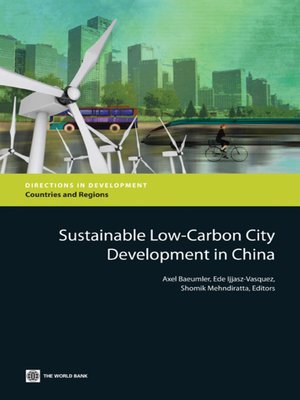
Sign up to save your library
With an OverDrive account, you can save your favorite libraries for at-a-glance information about availability. Find out more about OverDrive accounts.
Find this title in Libby, the library reading app by OverDrive.



Search for a digital library with this title
Title found at these libraries:
| Library Name | Distance |
|---|---|
| Loading... |
The continuing rapid growth and development of Chinaâs cities brings many complex challenges. Tasked with supporting strong economic development that provides jobs and a good quality of life for its growing number of residents, Chinaâs cities also must ensure sustainable development in line with national efforts to transition to a less carbon-intensive economy, as outlined in Chinaâs 12th Five-Year Plan. Sustainable Low-Carbon City Development in China summarizes, through the specific lens of low-carbon development, the lessons of the World Bankâs activities related to sustainable urban development in China. The various chapters present overall approaches and achievements in low-carbon city developments and highlight specific experiences across all urban sectors, including energy, transport, solid waste, water, and waste water. The book also explores citiesâ role in climate adaptation and opportunities presented by carbon finance and other global mechanisms to finance low-carbon city development. The World Bank project data and experience combined with the national and international experience presented in this edited book deliver both a broad picture and actionable steps for Chinaâs urban development. The chapters argue that Chinaâs cities not only need to, but also have an opportunity and the ability to integrate sustainable low-carbon development in their urban development. Low-carbon efforts align closely with the sustainable urbanization agenda and the book points to multiple benefits, such as improved air quality and urban livability, that can be derived from implementing this urgent agenda. The intended audience of this edited book is government officials of municipalities, cities, and townships in China who will be defining policies and programs to achieve the targets of economic growth and carbon emission reductions emerging from the 12th Five-Year Plan. The lessons presented may also be of interest to other countries and development partners supporting low-carbon urban programs.







